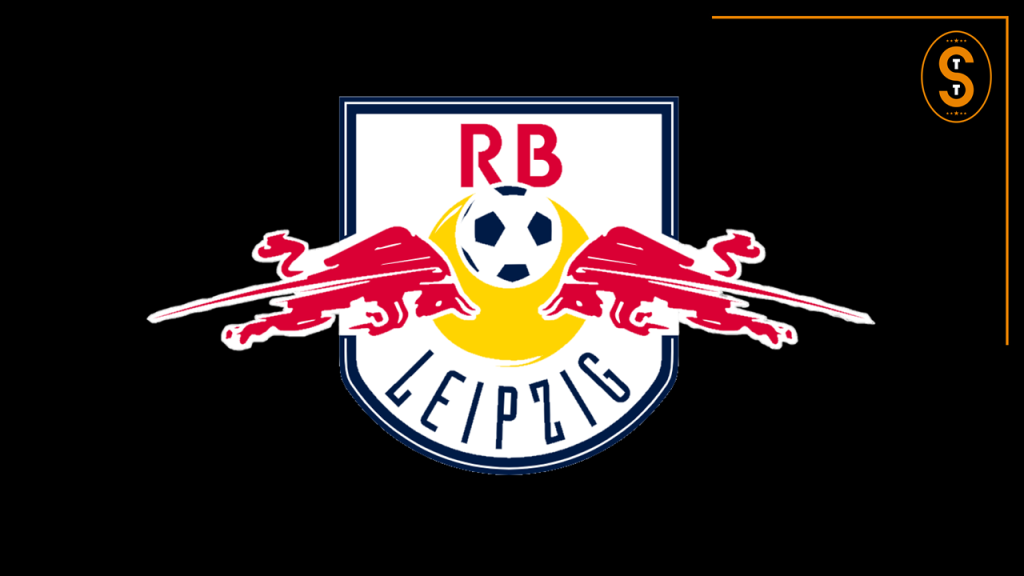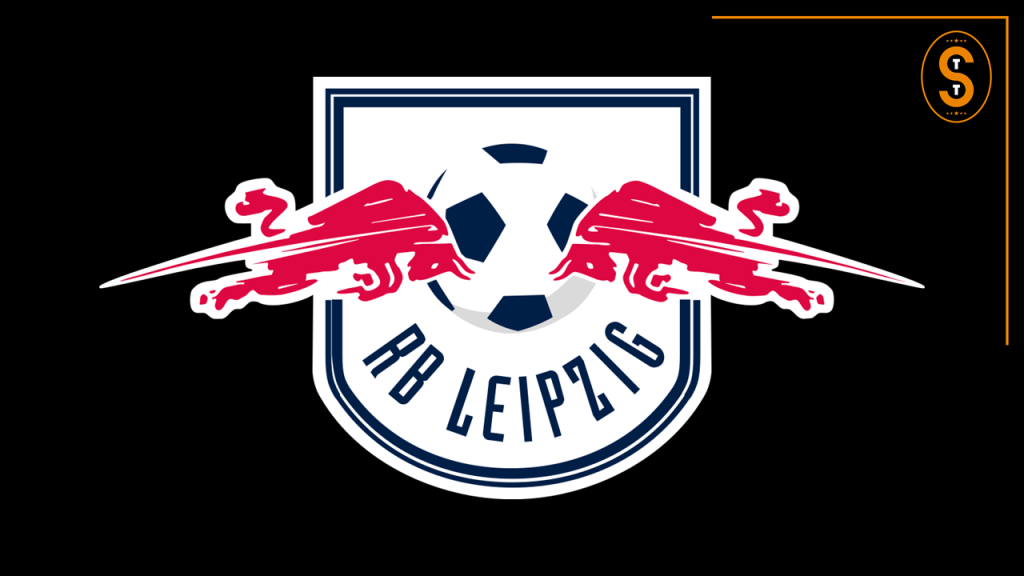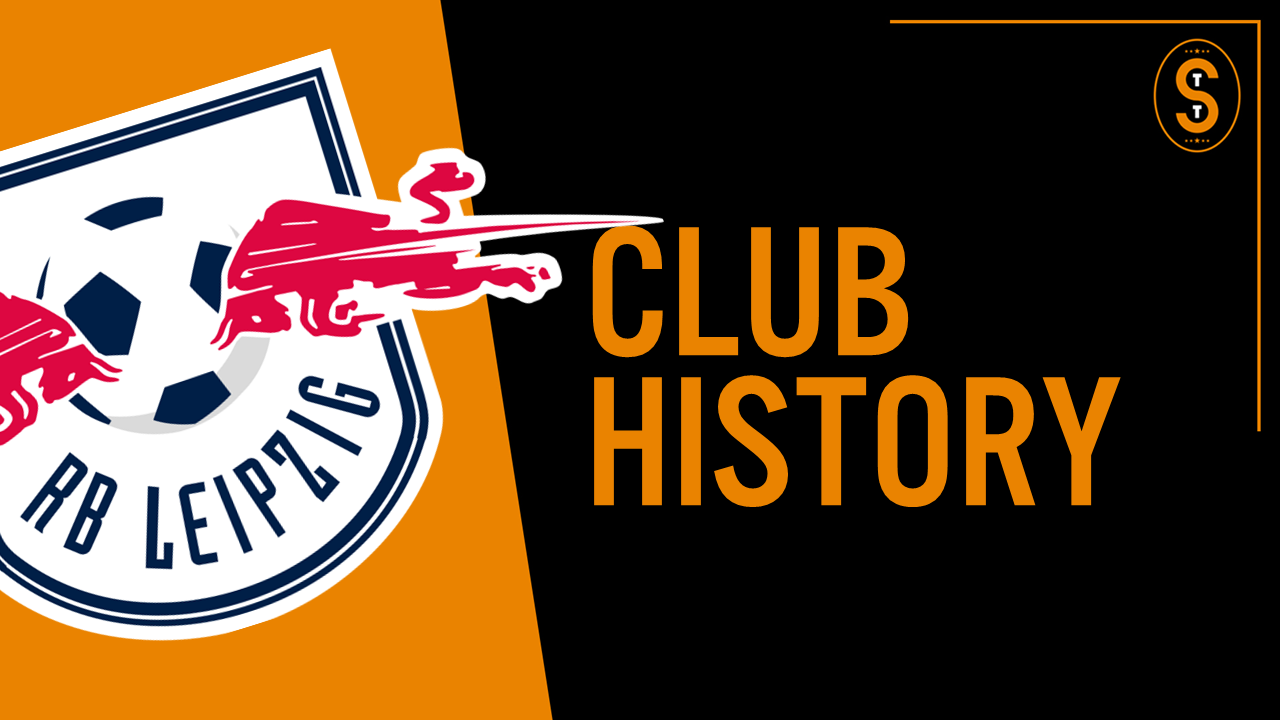Welcome to the Soccer Tavern, where we’re discussing the history, philosophy, and culture of the beautiful game. My name is Dave and in this video, we’re talking about the history of RasenBallsport Leipzig, better known as RB Leipzig. Pull up a seat and let’s start the discussion.
RB Leipzig is located in the central part of the city of Leipzig. Leipzig is located in the eastern, slightly northern part of Germany. The club currently play in the Bundesliga and its home ground is called Red Bull Arena. The stadium opened in 2004 and currently holds about 43,000 people, but the club plans to expand to 48,000 within the next 2 years or so.
Origin
The club’s founding date is listed as May 19th, 2009 on the RB Leipzig website, but the story begins much earlier than that.
The club preceeding RB Leipzig was named SSV Markranstädt. That club was officially created on March 29, 1912 at the Alte Börse restaurant in the town of Markranstädt on the outskirts of Leipzig. Its original name was Fußballclub Sportfreunde Markranstädt 1912.
That club existed in relative provincial obscurity throughout its existence, changing its name to Spiel und Sportverein Markranstädt or SSV Markranstädt in 1990. Now, let’s talk about the Red Bull energy company, current owners of RB Leipzig.
Throughout the Red Bull company’s history, it has utilized sports sponsorship as a marketing strategy. In the early 2000s, the company already owned the soccer clubs Red Bull New York, Red Bull Brazil, and Red Bull Salzburg. The company had tried unsuccessfully to purchase a team in Germany. The governing body of German soccer is the DFB and has rules preventing individuals and companies from solely owning clubs. The DFB requires at least 8 owners, but most German clubs are owned by thousands of members & fans.
Red Bull found a way to circumvent this system by purchasing the playing license for SSV Markranstädt who was in the 5th division in 2009 and outside of the DFB’s governing structure. The club’s first team was rebranded RB Leipzig/Markranstädt. The DFB was successful in preventing the club from officially being named Red Bull, but the new owners found a way to circumvent these rules by creating a word called RasenBallsport. It is a made up word that basically can be translated as lawn ball game, but when abbreviated the team would be RB Leipzig, a thinly veiled reference to actually mean Red Bull Leipzig.
The Red Bull owners proceeded to spin off the first team from the rest of the club in 2010 and dropped the Markranstädt from the club’s name. The remainder of the club continued as SSV Markranstädt and still plays in the lower divisions of German soccer. RB Leipzig has methodically risen up the divisions to its current status as a perennial champions league place contender in the Bundesliga. This whole approach to building the club has made RB Leipzig the most universally disliked team in the Bundesliga.
Nicknames
The club’s 2 nicknames are Die Bullen and Die Roten Bullen. These translate as the bulls and the red bulls.
Both are clearly a reference to the club’s sole investor, energy drink company Red Bull.
Crest
The crest is basically the corporate logo of the Red Bull Energy company with the club’s name of RB Leipzig at the bottom.

The club’s original crest varied slightly with the yellow circle in the background and the RB in red above the bulls and words Leipzig.

The German soccer governing body enacted rules that stated the logo was too similar to the sponsor logo and thus needed to be updated. So, in 2014, the crest was condensed, simplified and slightly updated to the one used today. It’s still exceptionally similar to the Red Bull Corporate logo, but apparently was different enough to pass the sponsor rules.
Important Events
With Leipzig’s relatively short history, I’m only going to highlight 3 events here.
On June 2, 2013, RB Leipzig drew on the road 2-2 at Sportfreunde Lotte in the final match of the 2012-2013 season. This was the playoff to qualify for the 3. Liga, which is Germany’s 3rd division. Leipzig had gone the entire Regionalliga Nordost (or 4th division) season undefeated. The team also was undefeated in its cup matches, which meant the Red Bulls went the entire season undefeated across all comps with 26 wins and 10 draws. Any undefeated season is impressive and thus worthy of mention here.
The next event I’d like to discuss happened on May 8, 2016 when the Red Bulls beat Karlsruhe 2-0. The win clinched a top 2 finish in the 2. Bundesliga season and automatic promotion to the Bundesliga. Seven seasons after the club was more or less created in the 5th division, it had qualified for the top league in Germany. It was a great day for the club.
And the final event I’d like to highlight came on May 6, 2017. On this date, Leipzig beat Hertha Berlin 4-1. The result meant that the Red Bulls secured a Champions League berth for the following season. The club would go on to finish the Bundesliga season in 2nd place. Both the qualification for Champions League and finishing as Bundesliga runners up were incredibly impressive for a club in its first Bundesliga season. The Red Bulls became the first club in Bundesliga history to secure European qualification in its first season.
Supporters
RB Leipzig is almost universally despised throughout German soccer for being a club that circumvented the ownership rules and puts commercialization as a first priority. Whether you agree with that sentiment or not, the club has legitimate supporters who are working to build their own traditions at a club that is about 10 years old.
At time of recording, 28 different RB Leipzig fan groups are organized under a fan coalition called Fanverband Leipzig. The organization has been around since 2013 and represents the fans in communicating with the club.
Additionally, there are certain fan groups that want to own the RasenBallsport part of the club’s name and make a unique culture around the club that isn’t just adhering to the Red Bull parent company’s brand and objectives. It will be fascinating to continue to follow the development of the club’s supporter culture.
Noteworthy Players
Even though the club is young, there are 6 players I’d like to highlight here.
Yussuf Poulsen is the closest thing to a club legend in Leipzig’s short history. He joined the club in 2013 while it was still in the 3rd division and is the club’s all-time record appearance holder. He’s also 3rd on the club’s all-time scoring chart and continues to be a key player for the club 6 years after first signing. One additional piece of interesting info: Poulsen wore the name ‘Yurary’ at his former club and still wears ‘Yurary’ for Denmark on the back of his jersey to honor his father who passed away from cancer when Yussef was 6 years old. Poulsen wanted to wear ‘Yurary’ at Leipzig, but the club had already printed jerseys with Poulsen on the back, so that’s why he doesn’t wear ‘Yurary’ on his back with RB.
The next player I’d like to mention is Emil Forsberg. Forsberg is a Swedish international player and has been with Leipzig since winter 2015. He led the club out of the 2. Bundesliga and into the Bundesliga in the 2015-2016 season and regularly leads the club in assists. He’s one of the most creative attackers in the club’s history.
If Forsberg is the most creative attacker, Timo Werner is the most lethal attacker in the club’s history. Werner joined RB in the summer of 2016, as it prepared to begin Bundesliga play for the first time. He’s since become the club’s 2nd all-time leading scorer and should likely become #1 before the season is over. Werner is a versatile attacker who can play anywhere along the forward line and has become a key member of the German national team.
The 4th player I’d like to mention is Willi Orban. Orban is the club’s captain and has been for a few years now, even though he’s only in his mid-20s. He’s a defensive stalwart for the club and a great leader. Orban has made more than 150 appearances for Leipzig in all competitions and is a Hungarian international.
And these last 2 players are likely the 2 best players to play for RB Leipzig, though I’m only going to briefly mention them because they played for the club for a short time: Naby Keïta & Joshua Kimmich. Keïta only played for RB for 2 seasons, but he was one of the best midfielders in the Bundesliga during his time in the league. He was so dominant that Liverpool in England paid an RB Leipzig transfer record to purchase him.
And Joshua Kimmich is one of the best German players in the world right now. He’s a versatile player that can play in defense or midfield. He joined Leipzig in the summer of 2013 as the club was in the 3rd division. Less than 2 years later, he moved to Bayern Munich while Leipzig was still in the 2nd division. Kimmich has gone on to have a stellar career with Bayern and the German national team but got his professional start with RB Leipzig.
Noteworthy Managers
I’d like to highlight 3 managers in this section.
Ralf Rangnick joined the RB organization in June of 2012 as Technical Director of both RB Leipzig and Salzburg. Rangnick is largely credited with laying the infrastructure and building RB into the massive success story that it has become. He took over as manager of RB Leipzig for the 2015-2016 2. Bundesliga season and led the club to the Bundesliga. He then went back to his Technical Director duties before returning as manager for the 2018-2019 Bundesliga season. He is one of the most critical people to the club’s success in its short existence.
Ralph Hasenhüttl took over for Rangnick after the club gained promotion to the Bundesliga in 2016. Hasenhüttl managed RB for 2 seasons and his first season was a massive success. The club qualified for the Champions League and finished the Bundesliga season in 2nd place. Hasenhüttl is nicknamed “The Alpine Klopp” as he comes from Austria and has a similar managerial style to Jürgen Klopp (who is one of the best managers in the world right now). Hasenhüttl moved on from RB after his second season.
And the final manager I’d like to highlight is Julian Nagelsmann. Nagelsmann is RB Leipzig’s current manager at time of recording and he is only in his first season. The reason I’m mentioning him is because he is one of the youngest and most respected managers in German soccer today. In 2016, he became the youngest ever permanent Bundesliga manager when he took charge of Hoffenheim at 28 years old. He has immense potential and is one of the brightest young coaches in world soccer. It will be very interesting to follow his coaching journey at RB Leipzig.
Rivals
Because of RB Leipzig’s unique club history and ownership structure, you could say every Bundesliga club is a rival and/or no club is a rival.
Most sets of opposing supporters claim to not acknowledge the club enough to consider them a rival, but when their team plays RB Leipzig, it seems like more anger, vitriol, and emotion comes out because of the supporter’s disdain for Leipzig’s ownership model. Soccer in Germany is very traditional and tribal with many believing that clubs should be majority owned by fans. The Bundesliga has rules intended to encourage that and any clubs that circumvent these ownership rules are largely derided by opposition supporters. The RB Leipzig owners have been the most recent and most brazen about manipulating the rules, which has led to the club’s near universal dislike throughout the Bundesliga.
Stats & Records
The stats and records we’re about to discuss are as of November 2019, which is when we are recording this video.
RB Leipzig has played 4 seasons in the top flight in its history.
The club has no major trophies with the team’s greatest accomplishment to date that they finished in 2nd place in the Bundesliga for the 2016-2017 season. They also finished in 2nd in the 2018-2019 DFB Pokal.
RB’s record first team appearance holder is Yussuf Poulsen with 235 first team appearances at time of recording. He is still an active player and is likely to add to that tally.
The club’s record goal scorer is Daniel Frahn with 88 first team goals. It should be noted that Timo Werner has 76 goals at time of recording and is still an active player. He could break that record if he remains with Leipzig through the end of the season & into the future.
Leipzig’s record transfer purchase was Naby Keïta from RB Salzburg in Austria on July 1, 2016 for ~€24M
And the club’s record transfer sale was Naby Keïta Liverpool FC in England officially on July 1, 2018 for ~€60M. The transfer was actually agreed the season before.
And 1 last interesting fact about the club: since the 3. Liga was created in 2008, RB Leipzig is the only team to gain promotion out of the 3rd tier in its first ever season in that division.
So there you have it… a bit of history on RasenBallsport Leipzig. Let’s continue the discussion in the comments section below the video.
Thanks for stopping by the Soccer Tavern. Hope to see you again soon. Prost!
